Détail de l'auteur
Auteur R. Salvia |
Documents disponibles écrits par cet auteur (6)
 Ajouter le résultat dans votre panier Affiner la recherche
Ajouter le résultat dans votre panier Affiner la recherche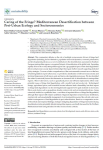
Article
R. Halbac-Cotoara-Zamfir ; A. Marucci ; R. Salvia ; G. Quaranta ; A. Sateriano ; M. Cecchini ; L. Bianchini |This commentary debates on the role of multiple socioeconomic drivers of fringe land degradation (including, but not limited to, population and social dynamics, economic polarization, and developmental policies), as a novel contribution to the d[...]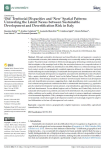
Article
R. Salvia ; A. Colantoni ; L. Bianchini ; G. Egidi ; G. Polinesi ; L. Salvati ; G. Quaranta |Although sustainable development and desertification risk are hegemonic concepts in environmental economics, their intimate relationship was occasionally studied and made spatially explicit. The present study contributes to fill this knowledge g[...]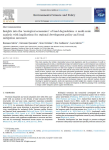
Article
R. Salvia ; G. Quaranta ; S. Cividino ; E. Cudlinova ; L. Salvati |This study examines the intrinsic relationship between land degradation and the accumulation of wealth at various planning scales in Italy, a desertification hotspot in Southern Europe. Local development was scrutinized at four planning scales ([...]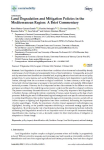
Article
R. Halbac-Cotoara-Zamfir ; D. Smiraglia ; G. Quaranta ; R. Salvia ; L. Salvati ; A. Giménez-Morera |Land degradation is more evident where conditions of environmental vulnerability already exist because of arid climate and unsustainable forms of land exploitation. Consequently, semi-arid and dry areas have been identified as vulnerable land, r[...]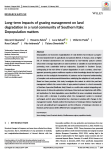
Article
G. Quaranta ; R. Salvia ; L. Salvati ; V. De Paola ; R. Coluzzi ; V. Imbrenda ; T. Simoniello |Depopulation and economic marginalization of rural districts have induced a progressive land abandonment in agricultural and pastoral districts. In Europe, areas at higher risk of farmland abandonment are characterized by low-intensity pasture s[...]
Article
G. Quaranta ; R. Salvia |In many regions peasant farm households are disappearing under socio-economic forces, their destine is either to become landless or holdings, but in Southern Europe more often they are relatively stable or became part-time farms. Great importanc[...]








